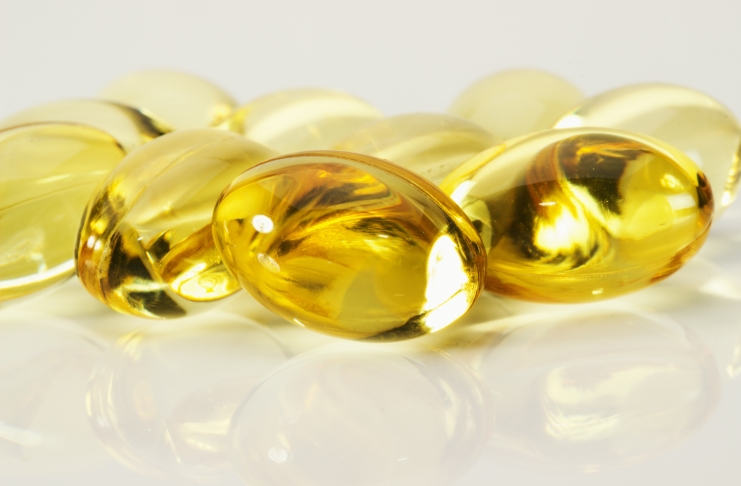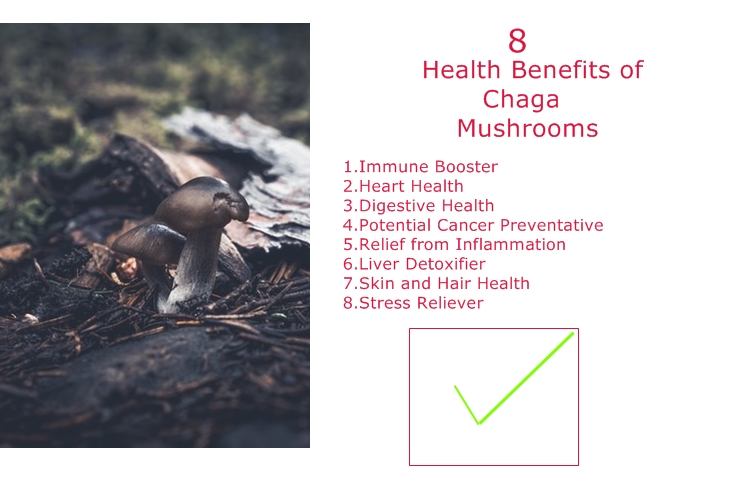One of the most amazing things about nature is how it can heal virtually every ailment known to man and woman, if you know what plants and supplements to look for. Ginkgo biloba extract is a supplement extracted from the ginkgo or “Maidenhair” tree.
This 300-million year old tree is officially the oldest plant species on the planet, and has been used in eastern medicine for thousands of years. Much of the health benefits attributed this herbal extract are thanks to hoards of German studies that have been completed over the last couple of decades.
In a nutshell, ginkgo biloba offers relief from a host of maladies including poor memory function, distracted thinking, depression, vertigo, tinnitus, sinus problems, headaches, and has even been shown to reverse age and UV-related damage to the retina of the eye.
Another interesting fact about ginkgo biloba: The plant has almost triple the genetic DNA markers of human beings (nearly 11-billion letters versus 3-billion for people).
To help decide if this superfood supplement is right for you, keep reading to learn about the benefits regular consumption can offer, as well as dosing recommendations to follow, side effects to watch out for, and general tips to help select the highest quality ginkgo supplements available.
Top 5 Ginkgo Biloba Supplements
 |
 |
 |
 |
 |
|
| Ginkgo Leaf Gaia Herbs | NOW Foods Ginkgo Biloba | Nature’s Way Ginkgo | Nature’s Answer Ginkgo | Pure Encapsulations Ginkgo | |
| Buy from Amazon | Buy from Amazon | Buy from Amazon | Buy from Amazon | Buy from Amazon | |
| Overall Rating | 5/5 | 5/5 | 5/5 | 5/5 | 4.5/5 |
| Serving Size | 2 Capsules |
1 Capsule | 1 Capsule | 1 Capsule | 1 Capsule |
| Price/Serving | $0.76 | $0.11 | $0.15 | $0.13 | $0.45 |
| Effectiveness | 5/5 | 5/5 | 5/5 | 5/5 | 4.5/5 |
| Quality | 5/5 | 5/5 | 5/5 | 5/5 | 4.7/5 |
| Taste | 5/5 | 5/5 | 5/5 | 5/5 | 5/5 |
| Digestibility | 5/5 | 5/5 | 5/5 | 5/5 | 4.8/5 |
Benefits of Using Ginkgo Biloba
1.Increased Circulation
This is one of the most talked about benefits of regular ginkgo supplementation. Ginkgo biloba extract has shown significant circulation-improving benefits when used daily.
Studies out of the United States, France, and Germany in recent years have shown the circulation improvement properties of ginkgo can help with a number of conditions by improving the movement of blood throughout the body including Alzheimer’s, dementia, atherosclerosis, cochlear deafness, depression, vascular disease, retinopathy (and other nervous system dysfunctions), memory loss, tinnitus, vertigo, male impotence, and many others.
2.Powerful Antioxidant
Ginkgo is a powerful antioxidant in addition to being a natural vasodilator. There are many antioxidants out there including vitamin C, but the more you can get through diet, the less likely the complications of oxidation are to effect you.
Oxidation is a huge problem in the body. It’s a natural process that causes us to age naturally. However, too much oxidation overwhelms the body leading to virtually every age and lifestyle related disease known to man. Too much oxidation causes cancer throughout the body, and also leads to the clogging of arteries.
When arteries become inflamed, they become sticky, allowing lipids to adhere to them and build up, eventually causing high blood pressure and clogging. Worse, lipids like LDL cholesterol and triglycerides are also oxidized, making them stick to one another, after sticking to arterial walls. Calcium floating in the blood then adheres to these lipids causing atherosclerosis that can only be fixed using surgical intervention.
3.Alzheimer’s & Dementia Treatment
Ginkgo’s vasodilating properties cause immediate improvement to patients with degenerative brain disease. This is true in all patients who suffer from Alzheimer’s and dementia. Decreased blood flow to the brain is a major factor in the progression of both diseases. Once circulation is improved, the death of critical brain cells is slowed and brain functions like memory and nervous system signaling are restored.
A study involving over 2,600 people with mild to moderate dementia showed vast improvements in memory, cognition, and motor function at the end of the trials. This benefit doesn’t happen in all cases, especially when the disease has advanced further. At this time, additional research is needed to confirm whether ginkgo supplementation is indeed a viable treatment for Alzheimer’s, but people who’ve used it definitely say it is.
4.Depression
Ginkgo supplementation can improve the symptoms of depression related to circulatory issues, and also those related to hormonal imbalance. Ginkgo has proven effective at blocking the action of an enzyme called monoamine oxidase that causes the breakdown of brain chemicals that are essential to feeling happy and healthy; primarily dopamine, serotonin, and norepinephrine.
The aforementioned brain chemicals are known as monoamine transmitters, and by blocking monoamine oxidase, the levels of these chemicals are restored to normal fairly quickly – around 14 days after starting ginkgo treatment. After weighing these effects over the long term, many scientists feel this particular benefit can be permanent, meaning ginkgo biloba may be a viable alternative to prescription MAOI inhibitors like phenelzine and selegiline (learn more).
5.Stroke Prevention & Treatment
Ginkgo biloba acts as a vasodilator and blood thinner, helping to prevent the blood clots that cause strokes to occur in the first place. Adding ginkgo to your dietary regimen after suffering from a stroke can help not only increase blood flow to the brain, but also prevent free-radical damage to the brain via the herb’s antioxidant function in the body.
6.Impotency
Male erectile problems, particularly in men aged 40 or older, is caused by reduced blood flow due to atherosclerosis. This is a huge problem that can lead to depression and suicidal thoughts if the problem cannot be corrected. Ginkgo has a huge effect on restoring blood flow to the penis, and can also improve erection quality in healthy males.
7.Raynaud’s disease
Raynaud’s disease occurs when blood vessels over-constrict when subjected to heat and cold. People who suffer from it then get muscle spasms, weakness, and numbness in the extremities due to lack of blood flow. Sufferers worldwide recommend ginkgo supplementation to help alleviate symptoms by restoring blood flow.
8.Parkinson’s Disease
There is much that science still doesn’t know about the cause and progression of Parkinson’s, which causes uncontrolled tremors and irreversible stiffness throughout the body. Ginkgo, known for its circulation restoring benefits, has helped many Parkinson’s suffers reduce the debilitating effects of this disease, primarily by helping to circulate more dopamine; a neurotransmitter that’s severely reduced in suffering patients.
9.Multiple Sclerosis
Many suffer from this demyelinating nervous system disorder that affects over 2-million people worldwide every year (killing over 10,000). When inflammatory markers are reduced, symptoms are reduced and the progression of the disease is slowed. Daily administration of ginkgo biloba extract has shown significant reduction in the inflammation caused by multiple sclerosis.
10.Reduce Macular Degeneration
Studies, such as those performed by XIAO-XING YIN, PH.D., have confirmed ginkgo’s ability to prevent macular degeneration caused by high blood sugar and other factors. Glaucoma suffers may also benefit with studies showing up to a 25 percent increase in blood flow to the eye after using ginkgo.
11.Organ Transplants
The same anti-inflammatory action that makes ginkgo so effective at treating the symptoms of multiple sclerosis may also benefit organ transplant recipients. Inflammation is one of several factors that can lead to the human body rejecting donated organs.
12.Other Conditions
Other conditions that may benefit from ginkgo supplementation include:
• Poor circulation.
• Vertigo.
• Macular degeneration.
• Diabetes related nerve damage and retinopathy.
• Allergies of all kinds.
• Premenstrual symptoms (PMS).
Tips for Choosing the Right Ginkgo Biloba Supplements
1. USP Approval:
One of the first things you want to look for when purchasing supplements is to look for a USP approval on the label. The United States Pharmacopeia designation ensures the liquid, pill, tea, or powder you’re purchasing has met their stringent standards for the safe handling and packaging of consumer supplements.
2. Standardized Leaf Extract:
Choose supplements with standardized ginkgo biloba extract (GBE), sourced from the dried green ginkgo leaf for best results. All other parts of the ginkgo tree are to be avoided, as they haven’t been proved to offer any benefits in clinical trials. Some parts, like the seeds, are considered a health risk to consume.
3. Ginkgolic Acid:
Look for the ginkgolic acid quantity on the label and ensure levels are listed at less than 5 PPM, as ginkgolic acid is considered dangerous in large and/or small but consistent doses.
4. Supplement Form:
Next thing to keep in mind is that most products outside tinctures, pills, and capsules have very little ginkgo available and are unlikely to offer any of the benefits mentioned on this page. Teas, commercially bottled drinks, and most athletic products claiming to have ginkgo fit into this category.
When in doubt, read the label and compare the dose of ginkgo listed to that listed in the dosing recommendations further down the page.
Ginkgo Biloba Recommended Dosage
Unless you experience regular and unpleasant side effects from consuming ginkgo, the accepted consensus on dosing is as follows:
• 40 mg standardized extract, with a ratio of 24% ginkgo flavone glycosides and 6% terpene lactones taken three times daily with food (ie., 120 mg daily).
• For dementia patients seeking relief from their symptoms, take up to 240 mg daily, split over three or four doses.
Start by taking just one or two small doses daily for the first week, to assess your tolerance. Move up to the recommended dose after this assessment period.
Ginkgo Biloba Side Effects
1.Headaches
Initial headaches are the most common side effect in the first week or two of supplementation, particularly in the evening several hours after the first dose of the day.
2.Increased bleeding risk
Ginkgo is a very powerful anticoagulant. It’s important to be aware of this when engaging in activities that increase bleeding risk, and you should always discuss supplementation with your doctor if you’re on blood thinners and considering supplementing with ginkgo.
3.Dizziness
Any supplement that acts as a vasodilator has the potential to cause dizziness in individuals who aren’t used to taking supplements to increase the blood flow to the brain. A common contradiction to this is that ginkgo also often reduces or eliminates dizziness in those who suffer from poor blood flow.
4.Nausea
Many users report nausea to the point of vomiting the first few times they take ginkgo biloba extract. As you continue to take it, nausea symptoms should disappear.
5.Constipation
When studied in laboratory tests, a few participants have complained that ginkgo caused them initial constipation in the weeks after starting the supplement.
6.Diarrhea
As with constipation, digestive upset is a possibility when starting any herbal supplement. This side effect will usually wear off after a week or two of regular use.
7.General restlessness
Sudden increased mental activity is far from what most who take vasodilator supplements like ginkgo would consider a side effect. However, its ability to increase brain activity can often lead to feeling restless, to the point of having trouble sleeping in the initial stages of taking ginkgo. Most report this side effect wears off as the weeks go on.
Ginkgo Biloba Warning:
While rare, unless you have access to fresh ginkgo seeds; fresh unprocessed seeds from the Maidenhair tree can and will cause seizures and/or death. This warning is not to be taken lightly. Never consume fresh seeds under any circumstances.
Conclusion
Ginkgo biloba is the only tree that survived the most recent ice age. It’s effects in the body are just as mighty as its legend. Consuming ginkgo biloba extract as detailed on this page, can offer a slew of health benefits ranging from the prevention of heart disease, strokes, and cancer, to the many positive effects that come from increased blood flow such as improving physical performance and increasing cognition and memory in the brain.
Considering how safe ginkgo has proven to be, and the low purchase cost, if you’re not already on ginkgo, it’s definitely time to give it a try and see what it can do for you.




